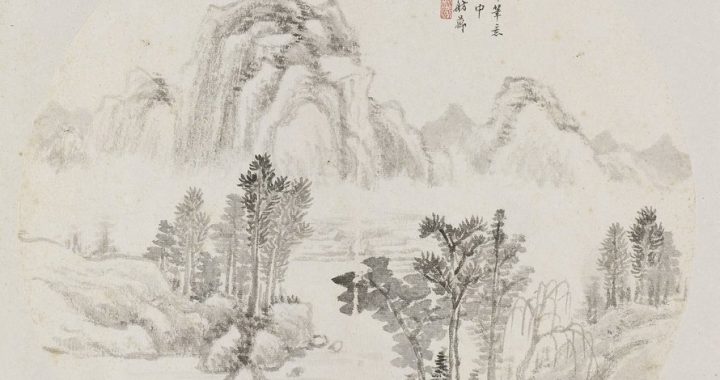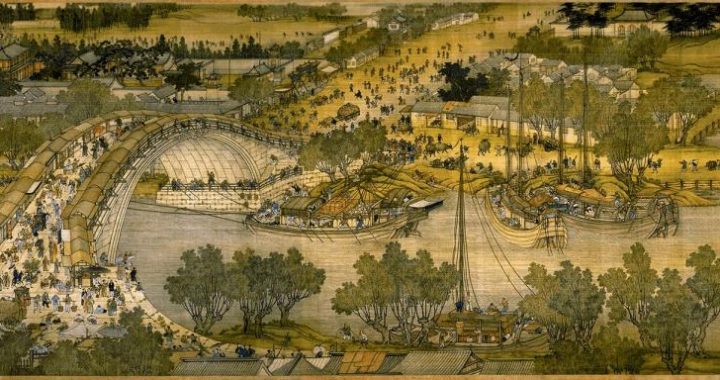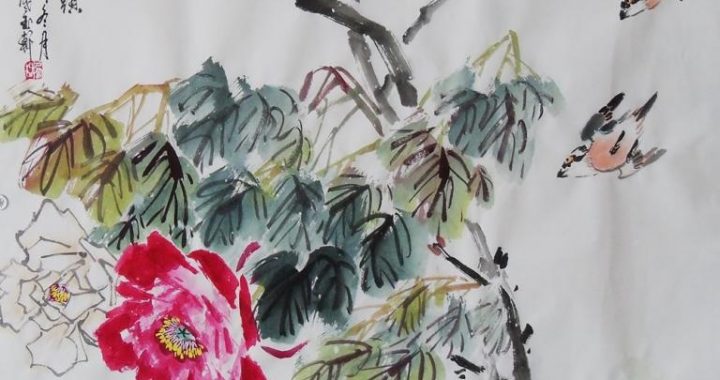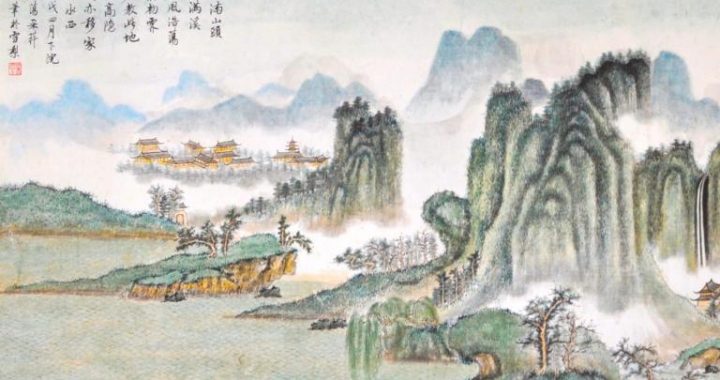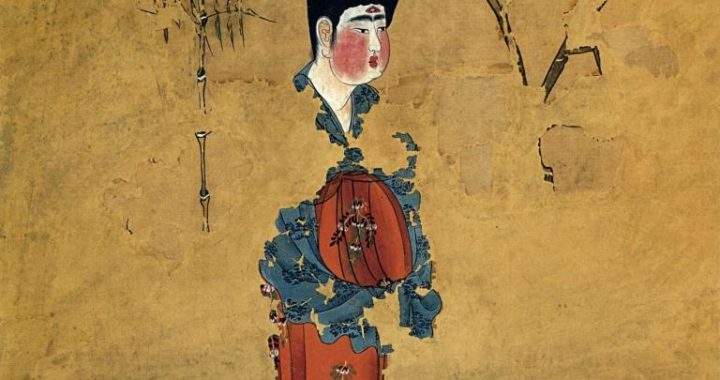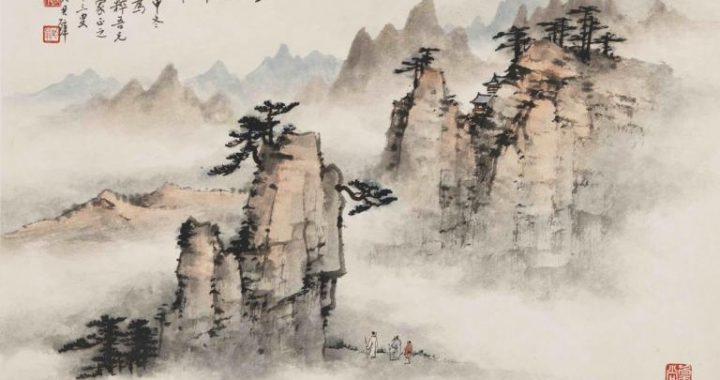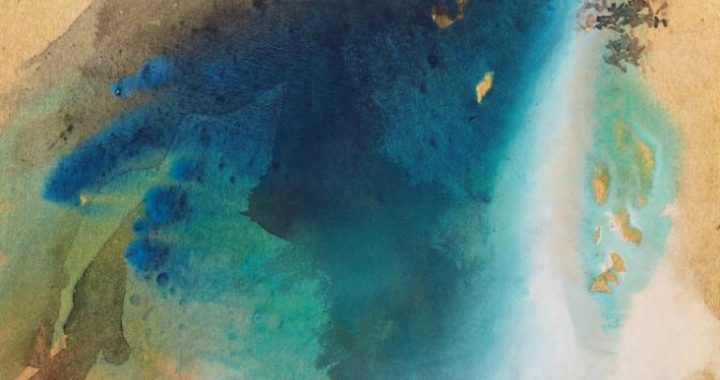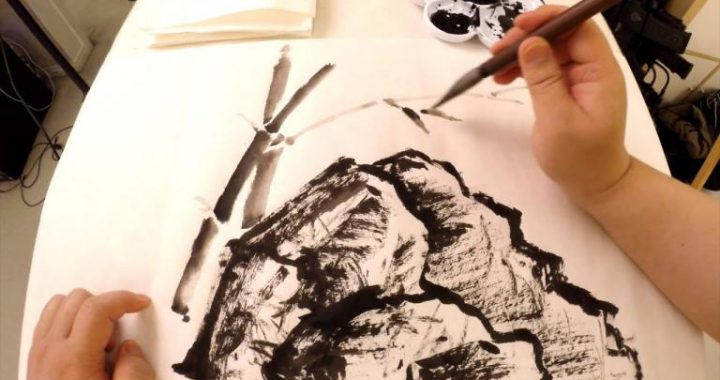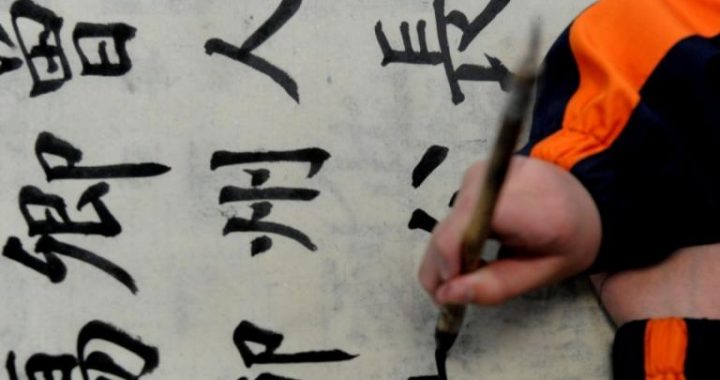Classical works in the history of traditional opera
13 min readIn the development of over thousand years,many works of traditional opera havebeen passed down as the literary masterpiece and classics that are known to ustoday.However,more of them are short of complete scrip or put on stage only by folk troupes.Based on the themes and contents,the plays fall into the following three types:romance between talented scholars and beautiful ladies,stories of emperors and high-ranking officials,and fables about immortals and ghosts.
Classical works in the history of traditional opera.
Since the inception of zaju in the Yuan dynasty,traditional operas have witnessed a great number of masterpieces which is popular among Chinese people from generation to generation.
①The Injustice of Dou E.This work is a drama by Guan Hanqing during the Yuan dynasty.It is one of Guan’s most popular works.Once a doctor,Guan Hanqing had been in Hangzhou and Yangzhou after the Southern Song was wiped out by Yuan troops.

Dadu,Hangzhou and Yangzhou of that time were all big cities for zaju creation and performance.No official biographical records of Guan are left since he was from lower-class.Nevertheless,he was praised as”talented,glamorous,and superior to all his peers”in the records at the time.Besides sanqu(non-dramatic songs,a verse form evolved in the Yuan dynasty.),he is also credited with 65 zaju plays,of which there are 18 works left.The Injustice of Dou E is the best known.
The Injustice of Dou E is a tragic story of a girl named Dou E who is framed by a hooligan and prosecuted wrongly.In her childhood,Dou E is sold to Cai family as a child bride since her father Dou Tianzhang,a poor scholar in Chuzhou,has no money to go to Peking to take the imperial exam.Soon after their marriage,Cai diessuddenly.Dou E and her mother-in-law are dependent on each other for survival.When Dou E’s mother-in-law goes out to ask for debt,she encounters hooligan Zhang Lir and his father,who later stay overnight in the house of Cai family.Zhang Lir intends to poison Dou E’s mother-in-law to force Dou E to marry him,but turns out to kill his own father by mistake.Zhang Lir bribes the local official to accuse Dou E of murdering his father.Before her execution,Dou E swears that her innocence will be proven by the upcoming abnormalities:namely,dripping blood that never drops on the ground,snow in the midst of summer,and a three-year long drought in Chouzhou,all of which do occur.Three years later,Dou E’s father Dou Tianzhang goes back to take office as an anti-corruption inspector in Chuzhou and meets the ghost of Dou E.He then retries the case and redresses the injustice.
The Injustice of Dou E reveals the darkness and corruption of the society at the time and reflects people’s indignation about the social reality.Dou E is an obedient child bride,yet she does not give in to the evil;she is so kind-hearted that she sacrifices herself and assumes the charge of murder to prevent her mother-in-law from being flogged;she is so honest and unyielding that she spurned Zhang Lir’s coercive proposal without hesitation.Facing death,she is extremely disappointed by the bloody society,but still doesn’tyields to fate.She curses the sun and moon,god and ghost,and heaven and earth.The author vividly depicts Dou E’s inner conflictions and different aspects of her characters which arouse immense sympathy and respect for her from the audiences;therefore characterization of the heroine has become a success.The retrial of the case at the end of the play reflects the author’s sympathy which is in line with Chinese people’s belief in justice in ancient times.Wang Guowei once said that The Injustice of Dou E deserves to be listed among the world’s great tragedies,while someone else considers it as one of the four great tragedies in ancient China.
In unaffected language, the dramas by Guan Hanqing are true to life and vivid in character portrayal. Critics praised his works as “natural”and”adept”. The following is the confession by Dou E before her execution, which has been widely appreciated:
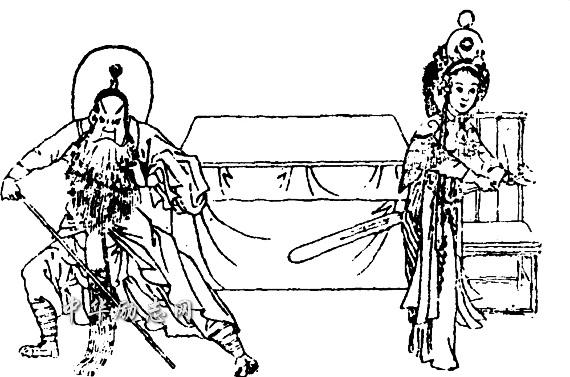
(Tune of Embroidery Bal1) The sun and moon gives light day and night, Gods and ghosts control the right of life and death; Yet Heaven cannot tell the innocent from the guilty and confuses the wicked with the good! The good are poor, and die beforetheir time; the wicked are rich, and live to a great old age. The gods are afraid oi the mighty and bully the weak; they let evil take its course. Ah, Heaven and Earth!
How can you still take your role while you do not distinguish good from evil and let me suffer this injustice! Alas!I’m left only with tears pouring down my cheeks in vain!
②Romance of the West Chamber. It’s a dramatic work written by the Yuan dynasty playwright Wang Shifuwith the courtesy name of Dexin(1250-1307?). Jia Zhongming of the Ming dynasty praised Wang Shifu in the supplement of The Record of Ghost Book in such words:”Wang Shifu’s dramas outshine the others in beautiful lyric rhythm.
Romance of the West Chamber is the best among all the zaju and chuanqi(tales of the marvelous) dramas”, which bears full witness to its artistic achievement and influence. Since the emergence of this play in the thirteenth century, it has enjoyed unparalleled popularity. There are even scenes in The Dream of Red Mansion that Jia Baoyu and Lin Daiyu, the hero and heroine, read it in secret.
The story of Romance of the West Chamber was first told in a literary Chinese short story written by Yuan Zhen during the Tang dynasty which was a love tragedy between Zhang Sheng and Cui Yingying. It enjoyed great popularity and had been adapted to various artistic forms with Ancient Chinese Music in Romance of the WestChamber by Dong Jieyuan of Jin dynasty the most outstanding before Wang Shifu. WhileDong Jieyuan made the tragic love story in which Cui Yingying was abandoned by Zhan Sheng into a happy ending where Cui Yingying and Zhang Sheng fought for their love and finally won. Wang Shifu’s play was closely modeled on this performance, but improved dramatis personae and story development.
Romance of the West Chamber depicts the love road between Zhang Sheng and Cui Yingying who fall in love at the first sight and finally get together by overcoming all kinds of resistances. Different from the other love plays of the same time, the psychological activities of the two characters are portrayed vividly though monolog and singing. There are happiness, suspicion, disappointment, regret, but also guess and misunderstanding. Yingying’s maid, Hong Niang, is smart and bold. She offers Yingying suggestions and dares to let her real feelings go. Many opera works borrow such a match of reserved heroine with a bold maid which is popular among people.
Romance of the West Chamber advocates fulfilling love by breaking through thetraditional bonds of parentage and wealth. It was later followed by many other works. The story of Xu Xian and Bai Niangzi of The Legend of White Snake has something similar with Romance of the West Chamber.
Romance of the West Chamber is popular among literati and scholars also for the reason of its elegant melody and lyrics. The singing of Cui Yingying in the pavilionto part with Zhang Sheng is the most well-known:”Drifting cloud in sky and withered chrysanthemum on ground. Wild geese are flying south as the wind from the west is blowing strong. Who dyed the forest red at dawn? There are always sorrowful tears of parting flowing down.”
③The Story of Pipa. It is one of the most famous works of the Yuan dynasty nanxi. The author Gao Ming was born in a scholar-gentry family in Wenzhou, Zhejiang.
His father and uncles were all hermits. He passed the imperial examination and began his official career at forty. Being upright and honest, he was not afraid of the powerful or the rich. He was knowledgeable and good at writing poems and essays.
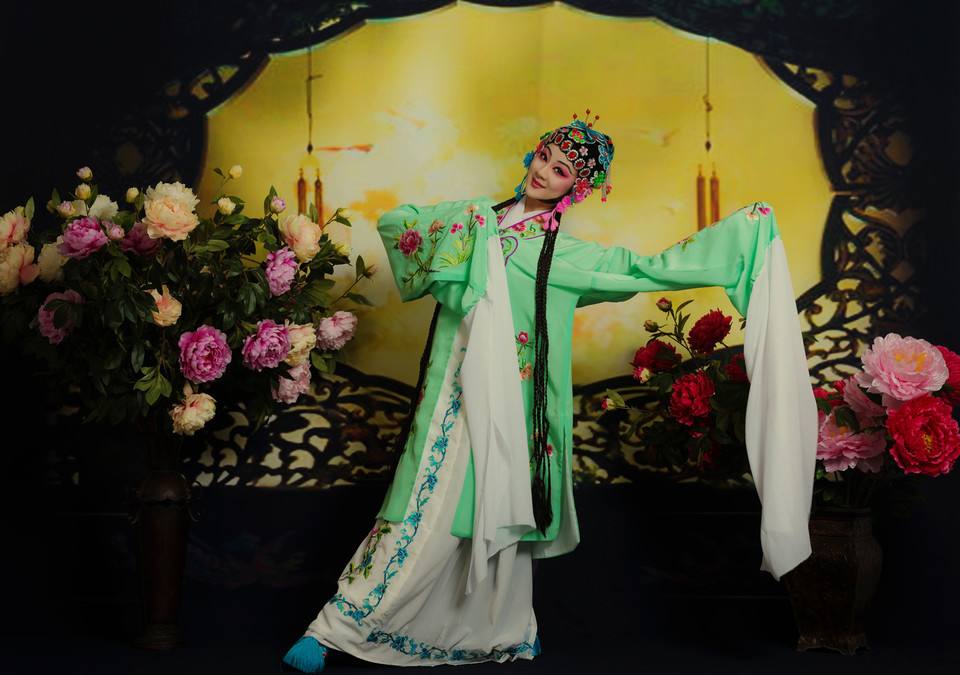
The original version of The Story of Pipa has been lost, but a dozen versions came down, most of which was adapted by Ming people. The plot of The Story of Pipa could be traced back to very early age. There has been Cai Bojie by Jinyuanben and Chaste Women Zhao and Erlang Cai in the early nanxi. Gao Ming’s The Story of Pipa is an adaptation of the traditional drama in which he turned Cai Bojie, an originally unfaithful man to his family and wife, into a positive character that is loyal to love and filial to his parents. As a result, he is no longer to blame for the tragedy of the family. The author designed “three compromises”plot for Cai Bojie: He is not a person who only pursues scholarly honor and official rank. He wishes to stay at home with his wife Zhao Wuniang and doesn’t want to take the exam, but his father forces him to do so; he doesn’t want to hold any official rank after passing the exam, but compromises under the insistence of the Emperor. The Prime Minister compels him to marry his daughter though he is very reluctant. With the three compromises, the author intends to tell that the tragedy is the result of feudal ethical codes, but he is also self-contradictory since he portrays Zhao Wuniang as aperfect wife and daughter-in-law under the notion of feudal ethical codes. Her happy ending of reunion with Cai Bojie again after all the hardships serves as the commendation for the traditional ethical codes.
The Story of Pipa is known for its double-thread structure. One thread is Cai’s experience of promotion after taking the exam, and the other is the miserable life of Zhao Wuniang in famine time. The contrast of the two makes the play even more dramatic. The Story of Pipa is a great success. It has been performed for centuries and has become an important piece in Kun tune, Yiyang tune and high-pitched tune.
Many dramas of later generations follow the same pattern with similar plots and characterization, such as the story between Xue Pinggui and Wang Baochai constantly performed in local operas.
④ Peony Pavilion. The version adapted by Bai Xianyong is very popular among young people with sumptuous stage and elegant aria. Peony Pavilion Interrupted Dream performed by Mei Lanfang is widely known. They all come from Peony Pavilion by Tang Xianzu.
Tang Xianzu lived in the period of Emperor Wanli of the Ming dynasty. He was born into a literary family in Linchuan, Jiangxi. He wrote four chuanqi plays, namely Purple Hairpin, Peony Pavilion, Nanke Dream and Handan Dream, which are referred to as “Linchuan Four Dreams”or “Yumingtang Four Dreams”. Peony Pavilion is the most famous of the four. By the late Ming dynasty, some people sang highly of “absolute love”. Tang Xianzu followed the trend and wrote Peony Pavilion. Du Liniang, the daughter of the governor of Nan’ an, Fujian, falls in love with a scholar named Liu Mengmei she dreams of in garden and finally dies out of lovesickness.
Three years later, Liu Mengmei comes to the capital to take the imperial examination.
When he passes by Du Liniang’s tomb, he meets her soul. Later Du Liniang reincarnates due to her persistence in finding her lover. Du Liniang’s father Du Bao is opposed to the marriage between Du Liniang and Liu Mengmei, however, Du Liniang insists on it and Liu Mengmei wins the champion of the imperial exam. Under the chair of emperor, they two finally get married. Du Liniang is a most impressivecharacter in Chinese literary works. She is young and pretty, yet has to behave herself in accordance with the rules of the feudal society. She has to stay at home and would be scolded if she dares to take a walk in the garden or embroider a flower on her dress. Du Liniang can’t repress her feelings and even a flower or a grass can arouse her desire for freedom and passion for life. She pursues love bravely, even after she dies. The absolute love transcending all barriers including death is the most touching. However, the design of such ending that the emperor help Du Liniang materialize her pursuit also reveals that the author is somewhat unrealistic.
Peony Pavilion, which is a eulogy for true love, has fascinated the audience fon centuries. The charm of the drama lies not only in the plot but also its beautiful lines. In Chapter twenty-three “Songs from Peony Pavilion Distresses a Tender Heart’ of A Dream of Red Mansion, Lin Daiyu is impressed by the lyrics she hears from Pear Fragrance Court which is exactly quoted from Peony Pavilion Interrupted Dream of Peony Pavilion:
(To the tune of Zaoluopao)
The flowers glitter brightly in the air,
Around the wells and walls deserted here and there.
Where is the “pleasant day and pretty sight”?
Who can enjoy “contentment and delight”?
Grandparents have never mentioned such pretty sights.
(Du Liniang, Chunxiang)
The clouds at dawn and rain at dusk,
The bowers in the evening rays,
The threads of shower in gales of wind,
The painted boat in hazy spays;
All are foreign to secluded maids.
(Chunxiang)All the seasonal flowers are in full blossom, but it’s still too early for the peony.
⑤ The Palace of Eternal Youth. It’s the love story between Tang Emperor Xuanzong and his consort Yang Guifei which has long been presented in literary works. Some consider their love as the root of the national tragedy; some also sigh for the stunning beauty of Yang Guifei and the emperor’s persistence in love. The Palace of Eternal Youth by Hong Sheng is a recreation based on the works of predecessors yet with breakthroughs in story line.
Hong Sheng lived in the period of Emperor Kangxi of the Qing dynasty. He waslong been unable to live up to his ambitions. Being proud and aloof, he never followed the others. The Palace of Eternal Youth is a work consumed his efforts of ten years in the prime of his life. Although he claimed in the foreword that thedrama was a mere love story, it also covers wide social spectrum of his age. Hong Sheng deliberately relates the story between Li and Yang to An Lushan-Shi Siming Rebellion in the Tang dynasty, demonstrating not only the tragic love but also the social changes in Tianbao period. He praises the loyal and honest, condemns the evil and corruptive, and expresses his sympathy for common people’s sufferings and hisnostalgic feelings for the previous dynasty. He gives his sympathy and respect to the love, and portrays Yang Guifei as a serious and tragic figure, but he also mentions the consequence she brings about to the country by her seducing the emperor for favor and indulging herself in extravagant life. In the latter part of the drama, there are repeated descriptions of the emperor’s frustration which reflects the author’s sympathy; however, in the first half, Hong Sheng doesn’t avoid depicting the emperor’s fickleness in love and incompetence as an emperor.
The lyrics in the play reveal Hong Sheng’s admiration for death-transcending love. In the foreword, he said that the depiction of their love was intended for warning the society that “when joy reaches its height, it is sorrow’s turn,”whicl is in line with people’s knowledge and outlook about the world at that time. The story of Li and Yang could also be found in other forms of opera. The most popular one now is The Drunken Beauty an adaptation of a huabu local play Drunken Guifei in the period of Emperor Qianlong of the Qing dynasty, the content of which is correspondent to that of Palace of Eternal Youth· Yeyuan (Night Melancholy). But the heroines of the two plays behave differently. In Night Melancholy, Guifei just awaits lamentably, while in The Drunken Beauty she chooses to indulge herself in alcohol. The Drunken Beauty is widely known due to Mei Lanfang’s excellent performance.
⑥ Peach Blossom Fan. Most of the famous courtesans in ancient China were good-looking and well-cultivated; as a result, some literary men regarded them as their soul confidantes. This was exactly the case for the courtesans of Qinhuai River in the late Ming dynasty. Some of them not only had talent and beauty, but were also mindful of the overall interest of the country in a national crisis and remained dutiful, thus winning much respect from later generations. Li Xiangjun is one of them. Peach blossom fan in the title is her love token with Hou Chaozong of the lateMing dynasty and the story is set against a backdrop of the replacement of the Ming dynasty with Manchu Qing dynasty. The peach blossom fan witnesses their separations and reunions in an unstable period when the fortune of individuals gets so precarious while a dynasty is fading. Peach Blossom Fan by Kong Shangren portrays such a theme and becomes a masterpiece in the history of traditional opera.
Kong Shangren, who was the 64th generation of descendent of Confucius, lived in the period of Emperor Kangxi of the Qing dynasty. He was interested in the history of Southern Ming dynasty in his early life. After talking a lot with the Ming survivors and people from the lower-society he finally finished Peach Blossom Fan.
In the story, hero Hou Chaozong is slanderously accused of secretly colluding to rebel against the throne by Ruan Dacheng after he falls in love with the courtesar Li Xiangjun. Panic-stricken, Hou is forced to flee. Such important officials in Southern Ming as Shi Kefa and Zuo Liangyu are depicted through their involvement in Hou’s case. In another line of narration, there emerges a series of characters such as Emperor Hongguang, Ma Shiying and Ruan Dacheng who had relationship with Li Xiangjun. Through the story of Hou and Li, the drama presents a complicated historical scene of the fall of Ming dynasty. However, though an author of such awonderful work, Kong Shangren was dismissed from office for the slight nostalgic feelings for the previous dynasty indicated in the play.
Prior to Peach Blossom Fan, most of the operas focused on the life of common people. Peach Blossom Fan elevated traditional opera to a much higher level as it reflects such big national events as the rise and fall of dynasties. Kong Shangren is versed in literature and music. With preparation of over ten years, the play boasts natural and opportune lyrics, narrations and actions. Together with Palace of Eternal Youth, they are regarded as two peaks of traditional opera in the Qing dynasty.
